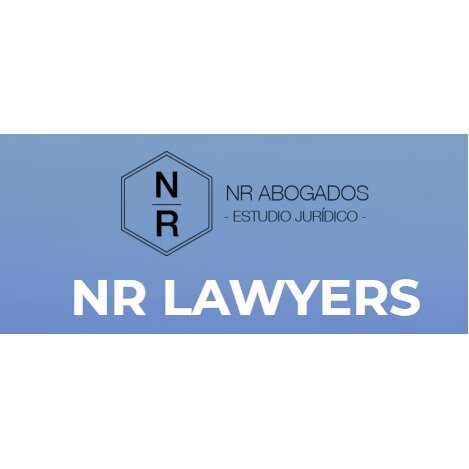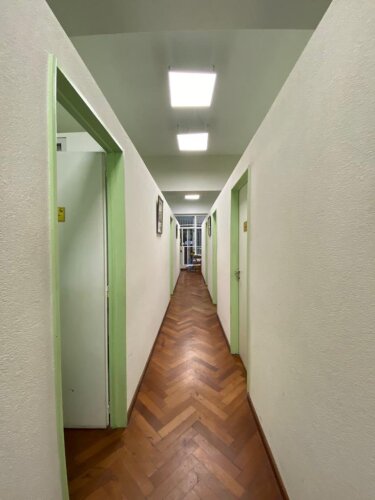Best Elder Abuse Law Lawyers in Argentina
Share your needs with us, get contacted by law firms.
Free. Takes 2 min.
Or refine your search by selecting a city:
List of the best lawyers in Argentina
About Elder Abuse Law in Argentina
Elder Abuse Law in Argentina is designed to protect older adults from various forms of abuse and neglect, whether physical, emotional, financial, or any other form that compromises their well-being. These laws are grounded in principles of human rights and respect for the dignity of the elderly. Argentina recognizes the vulnerability of its aging population and has implemented legal frameworks to address and prevent elder abuse.
Why You May Need a Lawyer
Seeking legal advice in cases of elder abuse is essential for several reasons. You may need a lawyer if you suspect an elderly person is being abused or neglected, or if you are an elderly person facing such situations. Common scenarios include: financial exploitation by caregivers or family members, physical or emotional abuse, neglect in nursing homes or care facilities, and violation of legal rights such as guardianship issues or property disputes.
Local Laws Overview
In Argentina, key legislative measures that address elder abuse include national laws protecting the rights of older adults, as enshrined in the 1994 Argentine Constitution and international treaties that Argentina is a part of, such as the Inter-American Convention on Protecting the Human Rights of Older Persons. These laws emphasize the importance of safeguarding the dignity, autonomy, and integrity of older adults, providing specific avenues for reporting and addressing abuse. There are also specific codes and regulations that outline the responsibilities of caregivers and family members in shielding elders from harm.
Frequently Asked Questions
What constitutes elder abuse?
Elder abuse can include physical harm, emotional or psychological abuse, financial exploitation, neglect, and abandonment.
Who can report elder abuse?
Anyone who suspects elder abuse can report it. This includes family members, neighbors, healthcare professionals, or any concerned individual.
What steps are taken once a report is made?
Once a report is made, authorities investigate the claims, which may involve social services, law enforcement, and legal actions to protect the elder.
Is there a specific age when someone is considered an elder under the law?
In Argentina, a person is generally considered an elder for legal protection purposes at the age of 60 or above.
What legal protections are available for the elderly in Argentina?
The elderly are protected under national human rights laws and international conventions that Argentina adheres to, providing avenues to combat abuse and exploitative practices.
Can legal action be taken against caregivers who are abusive?
Yes, legal actions can be initiated against caregivers or any individual found responsible for elder abuse or neglect.
What penalties exist for those found guilty of elder abuse?
Penalties include criminal charges, fines, loss of employment for caregivers, and in severe cases, imprisonment.
How does one prove financial exploitation of an elder?
Proof may include financial records, testimony from witnesses, expert analysis, and demonstrating unauthorized transactions or changes to legal documents.
Are there support systems for the elderly after abuse is reported?
Yes, various support systems, including counseling, legal aid, and community support services, are available for victims of elder abuse.
Can family members take legal steps if they suspect abuse in a nursing home?
Yes, family members have the right to report and initiate legal proceedings if they suspect abuse in nursing homes or care facilities.
Additional Resources
Some valuable resources for individuals seeking legal advice on elder abuse in Argentina include:
- The Human Rights Secretariat of Argentina
- The National Institute of Social Services for Retirees and Pensioners (PAMI)
- Local legal aid societies
- Non-governmental organizations focused on elder rights such as Fundación Navarro Viola
Next Steps
If you or someone you know requires legal assistance regarding elder abuse, the following steps can provide guidance:
- Document all evidence of abuse, including medical records, financial statements, and any other relevant information.
- Reach out to local authorities or social service agencies to report the abuse.
- Consult with a lawyer specializing in elder law to understand your rights and explore legal avenues.
- Contact local advocacy groups for support and guidance.
- Consider mediation or counseling services to address family-related disputes.
Seeking legal advice promptly can help protect the rights and well-being of the elderly, ensuring their safety and dignity in challenging situations.
Lawzana helps you find the best lawyers and law firms in Argentina through a curated and pre-screened list of qualified legal professionals. Our platform offers rankings and detailed profiles of attorneys and law firms, allowing you to compare based on practice areas, including Elder Abuse Law, experience, and client feedback.
Each profile includes a description of the firm's areas of practice, client reviews, team members and partners, year of establishment, spoken languages, office locations, contact information, social media presence, and any published articles or resources. Most firms on our platform speak English and are experienced in both local and international legal matters.
Get a quote from top-rated law firms in Argentina — quickly, securely, and without unnecessary hassle.
Disclaimer:
The information provided on this page is for general informational purposes only and does not constitute legal advice. While we strive to ensure the accuracy and relevance of the content, legal information may change over time, and interpretations of the law can vary. You should always consult with a qualified legal professional for advice specific to your situation.
We disclaim all liability for actions taken or not taken based on the content of this page. If you believe any information is incorrect or outdated, please contact us, and we will review and update it where appropriate.
Browse elder abuse law law firms by city in Argentina
Refine your search by selecting a city.














